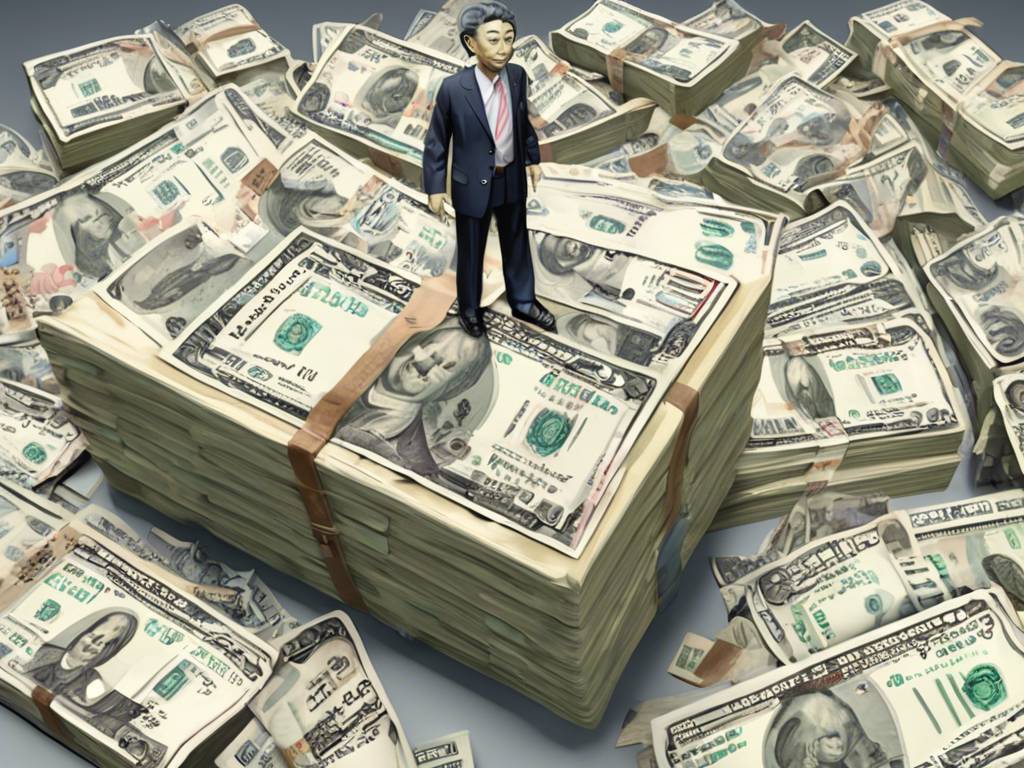The Dollar Weakens Against Euro on Disappointing US Economic Data
The dollar fell against the euro on Friday as a result of weaker than expected US economic data. However, it gained against the Japanese yen after Bank of Japan (BOJ) governor Kazuo Ueda stated that it was too early to claim victory on inflation.
US Manufacturing Slumps and Construction Spending Falls
In February, US manufacturing slumped further, with factory employment dropping to a seven-month low and new orders declining. Additionally, construction spending, which was anticipated to increase, actually fell in January. As a result, economists at Goldman Sachs reduced their gross domestic product (GDP) estimate for Q1 by 0.2 percentage points to 2.2%.
The Impact on the Dollar
The dollar has been largely rangebound as traders closely monitor economic data for any indications of when the US Federal Reserve will begin cutting interest rates. Marc Chandler, chief market strategist at Bannockburn Global Forex in New York, emphasized that “the US is the key side of it” in terms of driving currency movements. While the greenback seemed poised to rise in recent days, it failed to do so after Friday’s downturn.
- Fed Governor Chris Waller’s comments about resetting the balance sheet towards shorter-term Treasury bills also contributed to the dollar’s decline.
- The next significant US economic release will be February’s employment report.
Euro Zone Inflation Dips but Price Growth Remains High
Euro zone inflation decreased last month; however, underlying price growth remained stubbornly high. This reinforces the case for the European Central Bank (ECB) to maintain record high interest rates for a bit longer before considering easing policy around mid-year. The euro has been trading within a range of $1.07 to $1.11 since November as investors grapple with uncertainty regarding rate cuts by the ECB and the US Federal Reserve.
Jane Foley, head of FX strategy at Rabobank, stated that fresh news is being sought after, whether it comes from the ECB or a change in expectations about the Fed’s ability to cut rates.
Bank of Japan’s Stance on Inflation and Monetary Policy
The dollar strengthened against the yen following BOJ governor Kazuo Ueda’s comments that it was too early to conclude that inflation was close to sustainably meeting the central bank’s 2% target. Ueda emphasized the need for further scrutiny of wage outlook data. This reversal came after BOJ board member Hajime Takata suggested considering an overhaul of ultra-loose monetary policy, including an exit from negative interest rates and bond yield control.
- Inflation expectations and BOJ policy will likely depend on wage increase negotiations between large firms and unions.
- There are expectations that if inflation becomes more persistent in Japan, the BOJ will exit negative interest rate policy.
- The next BOJ policy meeting is scheduled for March 18-19.
Sterling Rises, Bank of England Holds Interest Rates
Sterling experienced a 0.26% increase against the dollar. Bank of England (BoE) chief economist Huw Pill stated that he believed it would still be some time before the central bank implements its first interest rate cut since the coronavirus pandemic began.
Bitcoin Holds Below Two-Year High
Bitcoin remained just below its more than two-year high reached earlier in the week. It was last up 1.4% at $62,320.
Hot Take: Dollar Weakens Against Euro on Disappointing Data, BOJ’s Stance Impacts Yen
The dollar faced downward pressure against the euro due to weaker US economic data. Additionally, the dollar gained against the yen as BOJ governor Kazuo Ueda expressed caution regarding inflation and emphasized the need for further data analysis. These developments highlight the ongoing impact of economic indicators on currency movements and investor sentiment.





 By
By
 By
By

 By
By
 By
By
 By
By